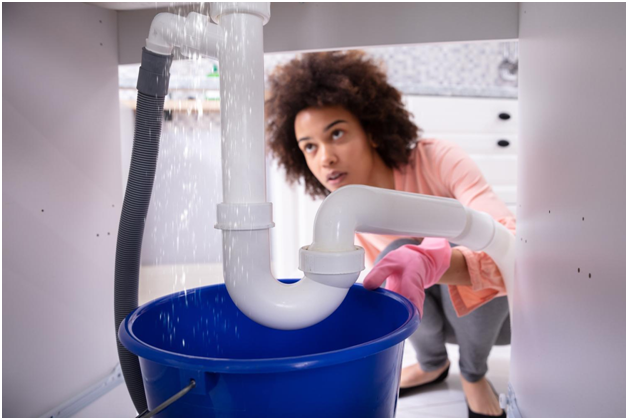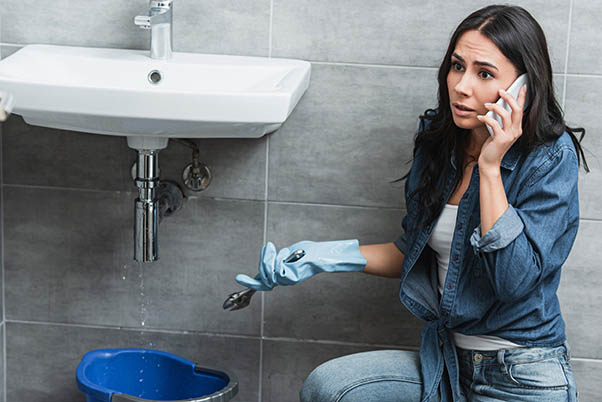Emergency Plumbing Fixes: What to Do Until Help Arrives
Emergency Plumbing Fixes: What to Do Until Help Arrives
Blog Article
The article author is making a few good points related to What to Do While Waiting for an Emergency Plumber in general in this post followed below.

Plumbing emergencies can strike any time, triggering stress and possible damage to your home. Whether it's a burst pipeline, a blocked drainpipe, or a leaking faucet, recognizing exactly how to manage the scenario until a specialist plumbing technician arrives can conserve you from further difficulties. This post provides necessary emergency pipes suggestions to aid you alleviate damages and gain back control during a pipes crisis.
Shut off the Water Supply
The primary step in any pipes emergency is to turn off the water supply. For local concerns, such as a leaking tap or toilet, switch off the valve near the component. When it comes to a major leakage or burst pipeline, situate your home's primary water shut-off shutoff and turn it off promptly. Knowing the place of these shutoffs in advance can save beneficial time throughout an emergency.
Shut Off Your Water Heater
In particular emergencies, such as a ruptured pipe, it's important to turn off your hot water heater. This avoids getting too hot or damages to the system when water quits moving. Turn off the power supply to the hot water heater (electric or gas) and allow it cool down to prevent possible risks.
Momentarily Stop a Ruptured Pipeline
A burst pipeline can lead to considerable water damages in mins. To mitigate the problem:
Call a professional plumber immediately to address the issue permanently.
Have an Emergency Pipes Kit
Prepare a standard plumbing emergency package to handle small concerns efficiently. Your package should include:
Having these tools handy can make a substantial distinction in your ability to manage emergencies.
Unclog Drains Securely.
A stopped up drainpipe can be a discouraging and untidy concern. Below's just how to tackle it:.
If these methods don't function, stay clear of using excessive pressure, as it might get worse the clog.
Take Care Of Overflowing Toilets.
An overruning bathroom can trigger instant mayhem. Here's what you should do:.
Address Little Leaks with Momentary Fixes.
Tiny leaks can quickly come to be significant troubles if left untreated. Use these momentary fixes till expert aid shows up:.
While these fixes aren't irreversible, they can help lessen water loss and damage.
Take Care Of Frozen Pipeline Meticulously.
In colder environments, frozen pipelines are a typical emergency. If you presume a frozen pipeline:.
Know When to Call an Expert.
While quick fixes can help briefly, certain pipes issues need prompt professional focus. Call a plumbing professional if:.
Quickly speaking to a professional makes sure the issue is solved correctly and avoids more problems.
Stop Further Damage.
Taking fast action to reduce damages can conserve you time and money in the future. Here's exactly how:.
Final thought.
Pipes emergency situations can be frustrating, but with the best understanding and devices, you can take care of the situation efficiently up until aid gets here. By turning off the supply of water, attending to little leakages, and making use of temporary fixes, you can reduce damages and maintain your home safe. Bear in mind, these pointers are short-lived solutions; always speak with an accredited plumbing technician to take care of the origin of the trouble. Prep work and fast reasoning are your ideal allies in any plumbing emergency.
8 Helpful Tips for Managing Plumbing Emergencies at Home
If your plumbing system hasn’t failed once, wait for it because almost everyone has a story to tell. Sometimes, it could be simple emergencies such as a leaking pipe, a blocked cistern, or even a big burst pipe. In situations like this, you need to have some handy tips to save you some money and from possible damages.
Take care of minor issues early.
Sometimes, you could have avoided an emergency by taking proactive measures while it was still early. Some major plumbing emergencies can be a result of an ignored minor issue. We recommend that you have items like plumbing tapes and other related items. A plumbing tape can allow you to manage minor leaks before the plumber arrives.
Cut off the water supply.
This tip is essential in almost any type of leakage problem. For problems like minor leakages in the toilet or kitchen, turn off the supply that takes water to the affected pipes. If the leakage is a major pipe, you must shut off the supply valve to the entire building. This will help you avoid flooding your home and neighbors if you share a flat.
Know your plumbing system
Folks typically move into a new apartment without understanding the water supply around the building. This can prove disastrous if a water emergency arises and the plumber is far away. The previous tip will prove useless if you don’t practice this one. More importantly, know where your water shut-off valve is located – you’ll need that knowledge to prevent potential home floods.
Have some common handy tools
There are lots of plumbing emergencies that you can handle without hiring a plumber. That’s why you must keep some tools available always. Some tools that you can use to fix simple plumbing emergencies easily include plumbing tapes, screwdrivers, thread seal tapes, plungers, pliers, tape measures, and rubber gloves.
Insulate your pipes from cold
You’ll save yourself from many plumbing expenses if you protect your water pipes from the cold. This is because of the harmful effects that cold weather can have on your pipes. During winter, your pipes can burst from being overly expected to freezing temperatures. So, make sure insulators are there to keep the pipes working correctly.
Avoid practices that will clog your toilet.
Many people indulge in practices that can damage the plumbing system of the entire building. One of these is when they use their toilet to dispose-off garbage. They flush all kinds of things, such as paper towels, bandages, hairs, female sanitary products, etc., down the toilet. This will block your toilet in the long run, incurring unnecessary expenditures. Dump such waste in the trash instead.
Check your dials regularly.
Sometimes, there could be leakages in your home without noticing them in time. So, constantly monitor your water meter dial. If the dial is reading when there is nobody using water, this is an indicator that there is leaking. Check for leaks immediately. Call a plumber as soon as possible if you can’t find any.
https://www.constructionplacements.com/8-helpful-tips-for-managing-plumbing-emergencies-at-home/

I recently found that blog post on Plumbing Emergencies: Tips on What To Do Before while doing a search on the internet. For those who liked our blog entry plz be sure to share it. Thank you so much for taking the time to read it.
Click Here Report this page